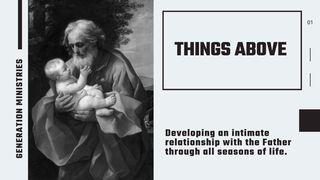Suffer Now, Glory LaterSample

By Andrew Koay, Australia
How much do we really care about people getting to hear the gospel?
I think back to a recent opportunity I had to tell a friend about Jesus Christ. John had been sharing with me about some of the struggles he was facing with his family and his fight against depression.
In that moment, I knew exactly what I needed to say, but somehow the words got stuck in my throat, like a large and uncomfortable lump. As the conversation carried on, I mostly listened and offered him some advice, all the while knowing that what I should’ve done was share the hope of Christ with him.
Why hadn’t I done that? On reflection, I’d been scared. Since I’ve known him, John has always been outspoken about his atheistic beliefs and his criticism of religion. And while we’ve had conversations that circled around the topic of God in the past, I always fell short of telling him the full gospel for fear of how he’d react.
What if he took offense to my sharing of the gospel? Wouldn’t that make the dynamics of one of my closest friendships uneasy and awkward? Furthermore, what if he was upset enough to tell the rest of our friends about my obnoxious effort to convert him? Wouldn’t that ruin my reputation, and effectively make me an outcast?
That’s why Paul’s example in Philippians 1:12-18 proved such a rebuke to me. In these verses Paul models what our mindset should be—one that is so consumed with the spread of the gospel that looking after our own comfort pales in comparison.
In these verses, we find Paul in a somewhat sticky situation. Not only was he writing to the Philippian church from prison, but as he wrote in verse 17, he has cause for concern that stems from the void his imprisonment has left. It seemed that some of the people who stepped up to spread the gospel in Paul’s absence were doing it with bad motives; as the apostle writes “supposing that they can stir up trouble for me while I am in chains.”
However, Paul’s response is most encouraging to us. Instead of moping about his situation, he rejoices (v. 18)! What’s most important to Paul is that his imprisonment has proved fruitful for the gospel. It has given him opportunities to share with his prison guards, and it has also caused other Christians to have the boldness to preach the gospel (vv. 13-14). Despite his dire situation and the impure motives that others may have (vv. 17-18), Paul cares most about the spread of the gospel.
So how much do we really care about people getting to hear the gospel?
My failure to share the gospel with John betrayed that maybe I’m more concerned about my own comfort and reputation; I wasn’t willing to endure any potential uneasiness and awkwardness. I needed to have the mindset that Paul displayed in Philippians—one that loved John enough to tell him the best news I’d ever heard no matter what it would cost me.
It doesn’t mean that I need to be brash and steamroll conversations, but Paul’s example does encourage me to think harder about how I can share the gospel with my friends. May we be like Paul, not letting our fears hold us back. The spread of the gospel—and seeing many come to the saving knowledge of Christ—is far too important.
Scripture
About this Plan

In Philippians, Paul says he considers it a "privilege" to be able to suffer for Christ. This might seem puzzling for those of us who are struggling to stay afloat, unable to see how any of it could be for our good. If you've ever wondered why God allows us to suffer, join us in this 5-day study to discover the secret that Paul discovered through the trials he faced.
More
We would like to thank Our Daily Bread Ministries for providing this plan. For more information, please visit: https://ymi.today/ymi-reading-philippians/









